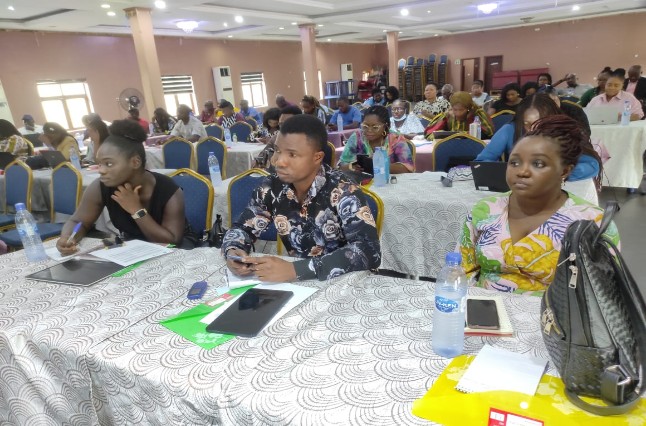The United Nations Children’s Fund (UNICEF) has charged the media to use authentic and verifiable data to tell the stories of child malnutrition in Nigeria to prompt the government to tackle the problem.
UNICEF Communication Specialist, Dr. Geoffrey Njoku gave the charge at a Media Dialogue in Enugu on Sustainable Development Goals as Child Rights with a focus on Child Malnutrition.
Journalists drawn from various media in the country attended the Media Dialogue organized by UNICEF to build their capacity in child protection reporting.
Dr. Njoku said child malnutrition in Nigeria is a major impediment to the attainment of Sustainable Development Goals (SDGs 2030) in the country
He urged journalists to put the issues around children’s rights on the front burner and use reliable data from dependable sources to spice up their reports and tell the stories explicitly.

UNICEF Nutrition Officer, Nkeiru Enwelum in her presentation at a Media Dialogue urged the government at all levels to address the problem of malnutrition through concerted efforts and ensure the delivery of high-impact nutrition intervention for children.
Enwelum said 45% of all child deaths globally are
from poor nutrition. He said Nigeria was ranked as the world’s second country with the highest number of malnourished children while Nigeria is number one in Africa.
She noted that poor nutrition in the 1,000 days from the conception of a child to 2 years of age would result in permanent damage to the child.
Enwelum said “Government must ensure that children get much nutrition that they need to be able to grow and thrive. If Nigeria can achieve this, we will be able to achieve the SDGs targets and enhance national productivity.”
“Failure to tackle malnutrition can result in long term cognitive and growth impacts, loss of income for households and up to 15% GDP loss for Nigeria and increased morbidity and potential death,” Enwelum.
Also in his presentation, a lecturer at the Department of Mass Communication Enugu State University of Science and Technology, Enugu, Dr. Chidiebere Ezinwa said malnourished children face a bleak future and tasked the government at all levels to take actions to address child malnutrition in the country.
He said adequate nutrition is a right of the child. A child should be well fed so that the child would do well in school And the future of the child would be bright.
Ezinwa said “if a child is not well fed, That means several rights of that child have been taken away from the child. A malnourished child would not do well in school and if a child fails to do well in school, that means the child’s future is affected. He cannot get a good job. When a child cannot get a good job, the child is condemned to poverty and it is intergenerational poverty.

